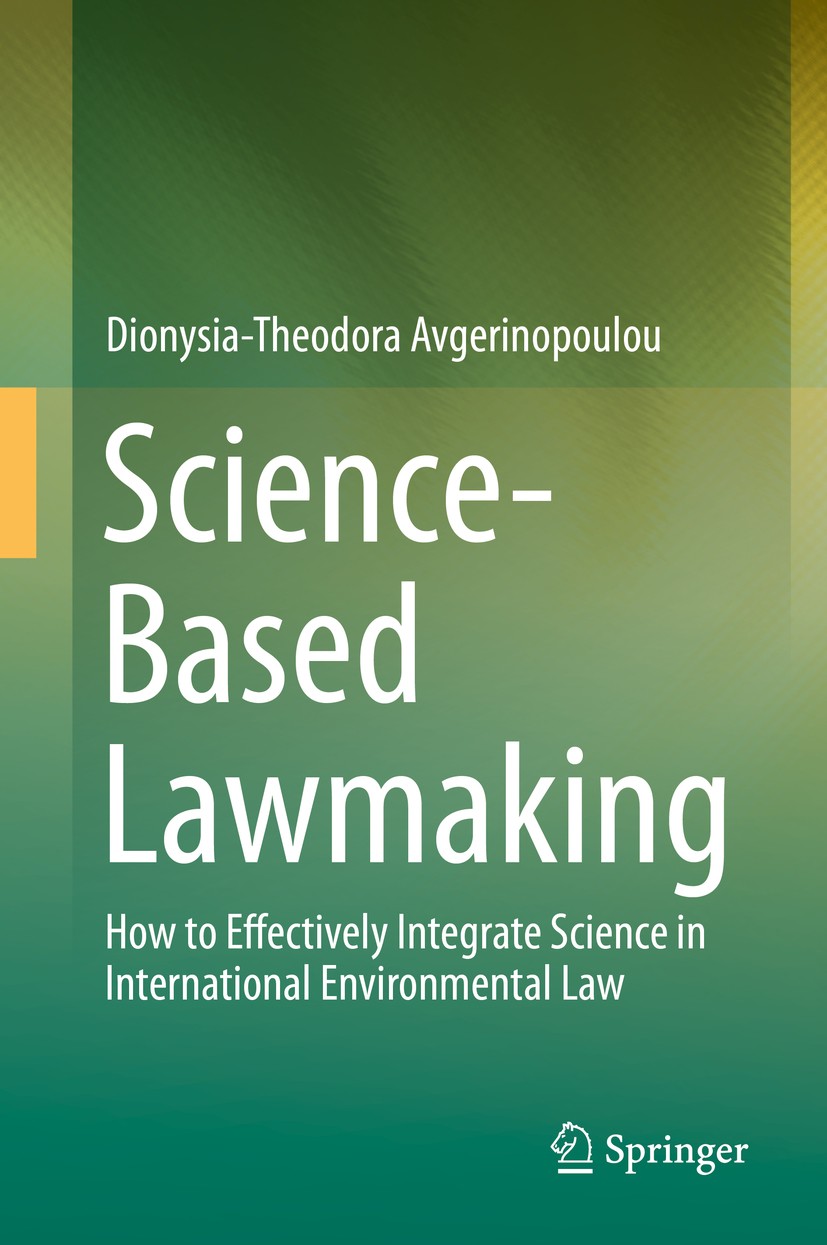| 書目名稱 | Science-Based Lawmaking |
| 副標題 | How to Effectively I |
| 編輯 | Dionysia-Theodora Avgerinopoulou |
| 視頻video | http://file.papertrans.cn/863/862668/862668.mp4 |
| 概述 | Offers an interesting historical perspective of the issue of decision and law-making in International Environmental Law.Presents a comparison of the law-making process of the majority of the internati |
| 圖書封面 |  |
| 描述 | .The Book takes the approach of a critique of the prevailing international environmental law-making processes and their systemic shortcomings. It aims to partly redesign the current international environmental law-making system in order to promote further legislation and more effectively protect the natural environment and public health...Through case studies and doctrinal analyses, an array of initial questions guides the reader through a variety of factors influencing the development of International Environmental Law. After a historical analysis, commencing from the Platonic philosophy up to present, the Book holds that some of the most decisive factors that could create an optimized law-making framework include, among others: progressive voting processes, science-based secondary international environmental legislation, new procedural rules, that enhance the participation in the law-making process by both experts and the public and also review the implementation, compliance and validity of the science-base of the laws...The international community should develop new law-making procedures that include expert opinion. Current scientific uncertainties can be resolved either by poli |
| 出版日期 | Book 2019 |
| 關(guān)鍵詞 | Environmental protection; Sound science; Plato; Public health; Climate law; Public choice; Ecosystems; Sust |
| 版次 | 1 |
| doi | https://doi.org/10.1007/978-3-030-21417-3 |
| isbn_softcover | 978-3-030-21419-7 |
| isbn_ebook | 978-3-030-21417-3 |
| copyright | Springer Nature Switzerland AG 2019 |
 |Archiver|手機版|小黑屋|
派博傳思國際
( 京公網(wǎng)安備110108008328)
GMT+8, 2025-10-6 02:01
|Archiver|手機版|小黑屋|
派博傳思國際
( 京公網(wǎng)安備110108008328)
GMT+8, 2025-10-6 02:01


